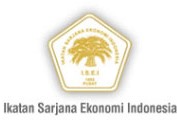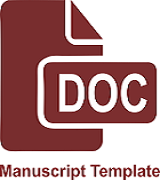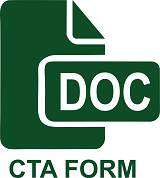Implementation Practices of Public Procurement Plans and Policies
(1) Magister Programme, Economics Faculty, Khairun University
Abstract
Public procurement issues have drawn many concerns and became a public debate because the rules and regulations are constantly reformed and restructured. Public procurement contributions in the world economy are very significant. In Indonesia, according to the Ministry of Finance, public procurement spending for 2009 was 33.4 percent of total government spending. This study aims to determine implementation practices of Public Procurement Plans or Rencana Umum Pengadaan (RUP) in Bitung City. The multiple statistical regression equation is used to process data from 47 respondents from regional apparatus task forces (SKPD) and the results show that the influence of independent variables (X) on dependent variable (Y) is 87.3 percent (R2), while 12.7 percent is influenced by other factors. The result of F-test shows 36.231> F- table 3.21. The calculated probability value is 0.000 which is smaller than 0.05. The partial test (t-test) from 9 independent variables (X) identifies 7 variables that have significant effects on the scores of RUP implementation (Y). The overall results of t-test show that the implementation practices of public procurement plans have significant effects of the higher compliance rates on the output of goods and services.
Keywords
Full Text:
PDFReferences
Al-Qu’ayyid, Ibrahim bin Hamd.(2008). Sepuluh Kebiasaan Manusia Sukses Tanpa Batas (terjemahan cetakan ke-empat). Jakarta: Maghfirah Pustaka.
Amemba, Cyrus Saul, et al. (2015). Challenges Affecting Public Procurement Performance Process in Kenya. European Journal of Business and Management. Vol.7. No.7. Pp.271-280.
Amemba, Cyrus Saul, et al. (2013). Challenges Affecting Public Procurement Performance Process in Kenya. International Journal of Research in Management. Issue 3. Vol. 4 Pp.41-55.
Ameyaw, Collins, Sarfo Mensah, Ernest Osei-Tutu. (2012). Public Procurement In Ghana: The Implementation Challenges To The Public Procurement Law 2003 (Act 663). International Journal Of Construction Supply Chain Management. Vol. 2. No. 2. Pp.55-65.
Badaso, Chalton Jillo. (2014). Challenges of Implementing Procurement Policies in State Corporations in Kenya. European Journal of Business and Management. Vol.6. No.3. Pp.56-61.
Callendar, G. & Mathews, D. (2000). Government Purchasing: An Evolving Profession?
Journal of Public Budgeting, Accounting & Financial Management. 12 (2).Pp. 272-290.
Gani, Rita. (2006). Menghargai Etika Profesi di Lingkungan Akademik. MIMBAR. Vol.22. No. 1. Hal. 114-129.
Hardiyansyah dan Rahmad Effendy. (2014). Model Implementasi Kebijakan Publik Dalam Pengelolaan Sampah dan Kebersihan Kota Palembang. MIMBAR. Vol. 30. No.1. Hal. 108-117.
Hendrawangsa, Permana. (2013). Kajian Efisiensi Dan Efektivitas Implementasi Kebijakan Pengadaan Barang/Jasa Dalam Rangka Penyediaan Infrastruktur Irigasi (Studi Kasus Pada Balai Besar Wilayah Sungai Citarum). Ringkasan Disertasi. Tidak dipublikasikan. Bandung: Pascasarjana Universitas Pasundan.
Irawati. (2013). Kearifan Lokal dan Pemberantasan Korupsi dalam Birokrasi. MIMBAR. Vol. 29. No. 1. Hal.101-110.
Jacob, Jufri, and Indah Susilowati. (2014). Implementation Of Good Governance Principles In Public Procurement For Empowerment Of Micro Small Enterprise: Empirica Study In Bitung City North Sulawesi Province. International Journal of Research
in Applied, Natural and Social Sciences . Vol. 2. Issue 5.Pp. 261-268.
Jacob, Jufri. (2014). Strategi Pemberdayaan UMKK Selaku Penyedia Barang dan Jasa Pemerintah. Disertasi. Tidak di Publikasikan. Semarang: Pasca SarjanaUndip.
Jeppesen.(2010). Accountability in Public Procurement - Transparency and the Role of Civil Society. United Nations Procurement Capacity Development Centre.
Kuncoro, Agus. (2013). Begini Tender Yang Benar: Langkah-langkah Melaksanakan Pengadaan Barang/Jasa Pemerintah. Jogjakarta: Primaprint.
Lembaga Kebijakan Pengadaan Barang/Jasa Pemerintah (LKPP). (2011).Senarai Pengadaan Barang dan Jasa Pemerintah. Jurnal Pengadaan. Vol. 1. No. 1.
Mwangi, Thanju David. (2013). Factors Affecting Compliance of Public Hospitality Entities to Public Procurement Laws and Regulations in Kenya. International Journal of Business and Commerce.Vol. 2. No.10. Pp.66-78.
Onyinkwa, Jane.(2013). Factors Influencing Compliance To Procurement Regulations In Public Secondary Schools In Kenya: A Case Of Nyamache District, Kisii County. Interdisciplinary Journal Of Contemporary Research In Business. May 2013. Vol. 5. No.1. Pp. 561-592.
Rahayu, Triana Puji, dkk. (2012).Implementasi Kebijakan E-Procurement Untuk Mewujudkan Efisiensi Dan Transparansi (Studi pada PT. PLN (Persero) Area Malang). Jurnal Administrasi Publik (JAP). Vol. 1. No.2. Hal. 166-174.
Setiawan, Odi. (2014). Penerapan Good Corporate Governance (Tata Kelola Perusahan Yang Baik) Dalam Pengadaan Barang Dan Jasa Secara Elektronik (E-Procurement) Di PLN Kota Balikpapan. E-Journal Ilmu Pemerintahan.Vol.2 No.4.
Schapper, P. (2008). The Impact of E-procurement on Corruption: The Potential of E-procurement for Curbing Corruption Risks. In ADB/OECD (2008) Fighting Bribery in Public Procurement in Asia and the Pacific. Proceedings. The 7th Regional Seminar on Making International Anti-Corruption Standards Operational, Indonesia 2007.
Soseco, Thomas(2012). Acorruption Pattern In Indonesia: A Geographical Analysis. JEJAK Journal of Economics and Policy, 5 (2). Pp. 127-229.
Sutedi, Adrian. (2012). Aspek Hukum Pengadaan Barang & Jasa Pemerintah dan Berbagai Permasalahannya. Jakarta: Sinar Grafika.
Yuwinanto, Helmi Prasetyo. (2013). Implementasi E-Procurement pada Pemerintah Kota Surabaya. Jejaring Administrasi Publik, Th V. No 1. Hal. 212-231.
Refbacks
- There are currently no refbacks.

This work is licensed under a Creative Commons Attribution 4.0 International License.






